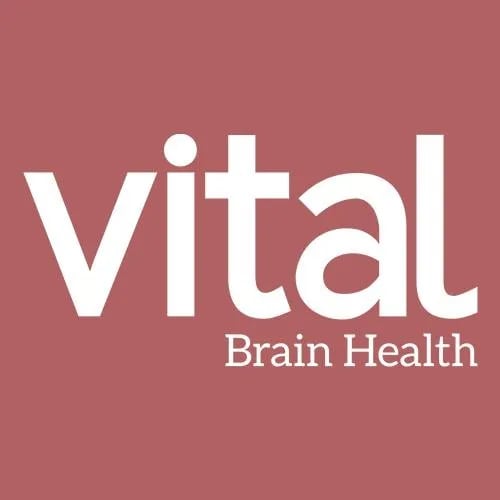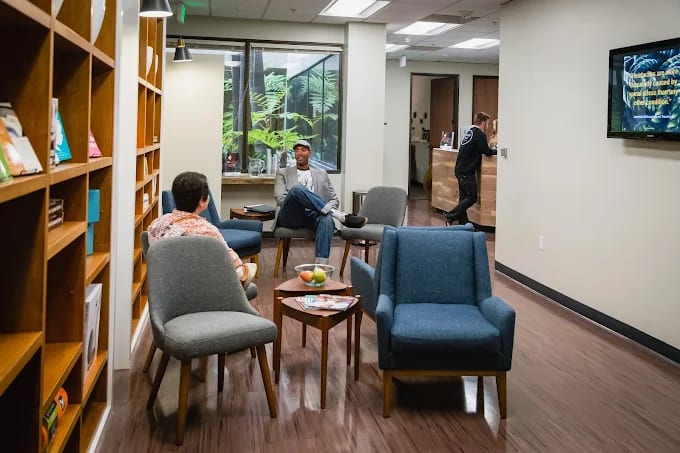Benefits of Cognitive Therapy for Mental Health
Cognitive therapy, a cornerstone of modern psychological treatment, has garnered significant attention for its profound benefits on mental health. Los Angeles Stress Relief Therapy services . Originating from the foundational work of Aaron T. Beck in the 1960s, cognitive therapy focuses on the interplay between thoughts, emotions, and behaviors, helping individuals identify and alter distorted or maladaptive thinking patterns. For residents of Los Angeles, a bustling city with its unique set of stressors and challenges, cognitive therapy offers a beacon of hope and a pathway to improved mental well-being.
One of the most significant benefits of cognitive therapy is its efficacy in treating a wide range of mental health disorders, including depression, anxiety disorders, and post-traumatic stress disorder (PTSD). In a city like Los Angeles, where the fast-paced lifestyle can exacerbate stress and anxiety, cognitive therapy provides a structured framework to tackle these challenges. By helping individuals recognize and reframe negative thought patterns, cognitive therapy empowers them to regain control over their emotional responses and behaviors. This can lead to a substantial reduction in symptoms and an overall improvement in the quality of life.
Moreover, cognitive therapy is highly collaborative and personalized, making it particularly suitable for the diverse population of Los Angeles. Therapists work closely with clients to tailor the therapeutic process to their specific needs and cultural backgrounds. This personalized approach ensures that therapy is relevant and effective, addressing the unique concerns of each individual. In a multicultural city, where people from various backgrounds converge, such customization is crucial for successful therapeutic outcomes.
Another notable benefit of cognitive therapy is its emphasis on skill-building. Unlike some other therapeutic approaches, cognitive therapy equips individuals with practical tools and strategies that they can apply in their daily lives. This focus on developing coping skills, problem-solving abilities, and resilience is invaluable for navigating the complexities of modern life in Los Angeles. Whether dealing with career pressures, relationship issues, or the general hustle and bustle of city living, the skills gained through cognitive therapy can enhance ones ability to handle lifes inevitable challenges.
Cognitive therapy also prides itself on being time-limited and goal-oriented, which is appealing to many individuals in a city as dynamic as Los Angeles. People often seek efficient and effective solutions that fit into their busy schedules. Cognitive therapy typically involves a structured number of sessions, with clear goals and measurable outcomes, making it a practical choice for those looking to achieve meaningful change in a relatively short period.

In conclusion, cognitive therapy offers a wealth of benefits for mental health, particularly for those living in Los Angeles. Its effectiveness in treating various mental health disorders, combined with its personalized, skill-based, and time-efficient approach, makes it a valuable resource for individuals seeking to improve their mental well-being. As the city continues to grow and evolve, cognitive therapy stands as a reliable and adaptable method for fostering psychological growth and resilience amidst the challenges of urban life.
Choosing the Right Cognitive Therapist in Los Angeles
Choosing the right cognitive therapist in Los Angeles can be a pivotal decision in your journey towards mental well-being. Cognitive therapy, a branch of psychotherapy, focuses on identifying and changing distorted or negative thought patterns that can lead to emotional distress and maladaptive behaviors. As one of the largest cities in the United States, Los Angeles offers a plethora of options when it comes to finding a cognitive therapist, but this abundance can also make the selection process daunting.
The first step in choosing the right cognitive therapist is to understand your own needs and goals. Are you dealing with anxiety, depression, or perhaps a specific phobia? Cognitive therapy can address a wide range of issues, but it is important to find a therapist who specializes in your area of concern. Conducting a self-assessment or consulting with a general healthcare provider can help you pinpoint what you need from therapy.
Once your goals are clear, researching potential therapists becomes crucial. In Los Angeles, therapists come from diverse backgrounds and offer various approaches within cognitive therapy. Look for therapists who are licensed and have credentials from reputable institutions. Checking online reviews and testimonials can provide insight into the experiences of previous clients and help you gauge the therapists effectiveness and approachability.

Another important factor to consider is the therapists communication style and personality. Cognitive therapy is a collaborative process, and a strong therapeutic alliance between you and your therapist is essential for success. Many therapists offer initial consultations, either free or at a reduced rate, which can be a valuable opportunity to assess whether their style aligns with your preferences. During this meeting, consider asking questions about their approach to therapy, experience, and how they plan to help you achieve your goals.
Practical considerations such as location, availability, and cost should also be taken into account. Los Angeles is a sprawling city, so finding a therapist whose office is conveniently located can significantly impact your ability to attend regular sessions.
Pasadena CA children ADHD therapy
- At Vital Brain Health we help with pasadena ca teen anxiety therapy so you can smile a little more while finding balance in life
- Pasadena family ADHD support
- At Vital Brain Health we help with mental health therapy los angeles ca so you can smile a little more while finding balance in life
Lastly, trust your instincts. While qualifications and experience are important, feeling comfortable and understood by your therapist is equally crucial. Therapy is a deeply personal process, and having a therapist you trust can greatly enhance the effectiveness of your treatment.
In summary, choosing the right cognitive therapist in Los Angeles involves a combination of self-assessment, thorough research, and personal intuition. By taking the time to find a therapist who meets your specific needs and with whom you feel a genuine connection, you are laying the groundwork for a successful therapeutic journey. Whether you are seeking to overcome a specific challenge or simply looking to improve your overall mental health, the right cognitive therapist can be a valuable ally in achieving lasting change.

Integrating Cognitive Therapy with Other Treatments
Integrating Cognitive Therapy with other treatments in the realm of mental health care, particularly in a diverse and dynamic city like Los Angeles, represents a progressive and effective approach to addressing the complexities of mental health issues. Cognitive Therapy, with its focus on identifying and modifying dysfunctional thoughts, beliefs, and attitudes, has long been a cornerstone in the treatment of various psychological disorders. This therapeutic approach emphasizes helping individuals develop skills to manage their thoughts and behaviors, which can lead to significant improvements in their emotional well-being.
Los Angeles, with its vibrant and multicultural population, presents a unique set of challenges and opportunities for mental health practitioners. The citys diversity necessitates a more personalized and culturally sensitive approach to therapy. Integrating Cognitive Therapy with other treatments allows therapists to tailor their approaches to meet the specific needs of each client, taking into account cultural, social, and personal factors that may influence their mental health.
One of the primary benefits of integrating Cognitive Therapy with other treatments is the potential for a more comprehensive approach to mental health care. For instance, combining Cognitive Therapy with pharmacotherapy can be particularly effective for conditions like major depressive disorder or anxiety disorders, where medication can help alleviate symptoms while cognitive interventions work on the underlying thought patterns. Additionally, Cognitive Therapy can be integrated with mindfulness-based approaches, such as Mindfulness-Based Cognitive Therapy (MBCT), to help clients develop a greater awareness of their thoughts and feelings in the present moment, fostering a more profound sense of self-awareness and acceptance.
Moreover, integrating Cognitive Therapy with family therapy or group therapy can address interpersonal issues that may be contributing to an individuals mental health challenges. In a city like Los Angeles, where family dynamics and social interactions can be complex, this approach can be particularly beneficial. By working with families or groups, therapists can help clients improve communication, resolve conflicts, and build stronger support systems, which can enhance the overall effectiveness of treatment.
The integration of Cognitive Therapy with other treatments also encourages innovation and flexibility in therapeutic practices. Mental health practitioners in Los Angeles are constantly seeking new ways to improve treatment outcomes, and combining different therapeutic modalities allows them to draw from a wider range of tools and techniques. This not only enhances the therapists ability to address a broader spectrum of issues but also empowers clients by providing them with a more diverse set of strategies to manage their mental health.
In conclusion, the integration of Cognitive Therapy with other treatments in Los Angeles reflects a forward-thinking approach to mental health care. Los Angeles natural anxiety treatment By combining the strengths of various therapeutic modalities, practitioners can offer more personalized, culturally sensitive, and effective treatment options. This holistic approach not only addresses the symptoms but also considers the broader context of an individuals life, ultimately leading to more sustainable and meaningful outcomes for clients. As mental health continues to be a priority in Los Angeles, the integration of Cognitive Therapy with other treatments will likely play a crucial role in advancing the field and improving the lives of those seeking help.
Future Trends in Cognitive Therapy Practices
Cognitive therapy, a cornerstone of contemporary mental health treatment, continues to evolve, with Los Angeles at the forefront of pioneering practices. In this bustling metropolis, mental health professionals are adapting to the changing landscape of therapy by integrating innovative approaches that cater to the diverse needs of its population. The future trends in cognitive therapy practices in Los Angeles are shaped by advancements in technology, a deeper understanding of cultural nuances, and a growing emphasis on personalized care.
One of the most significant trends is the incorporation of technology into cognitive therapy. Teletherapy, which gained prominence during the COVID-19 pandemic, remains a vital component of modern practice. It offers clients the flexibility to receive treatment from the comfort of their homes, breaking down geographical barriers and making therapy more accessible. Furthermore, the use of virtual reality (VR) in cognitive therapy is gaining traction. VR environments can simulate real-world scenarios, allowing clients to confront and manage their anxieties or phobias in a controlled setting. This immersive experience can enhance the effectiveness of traditional cognitive-behavioral techniques.
Cultural competence is another crucial factor shaping the future of cognitive therapy in Los Angeles. The city's rich tapestry of cultures and ethnicities demands that therapists possess a nuanced understanding of cultural influences on mental health. Future practices are likely to emphasize culturally informed therapy that respects and incorporates clients backgrounds and belief systems. This approach not only fosters trust but also ensures that therapeutic interventions are relevant and effective for diverse populations.
Personalized therapy is also becoming more prevalent as practitioners recognize the limitations of one-size-fits-all approaches. Advances in psychological research and data analytics allow therapists to tailor interventions based on individual client profiles. This customization may involve integrating different therapeutic modalities, adjusting treatment plans based on progress metrics, or utilizing genetic information to understand predispositions to certain mental health conditions. Personalized cognitive therapy has the potential to improve outcomes by aligning treatment strategies with the unique needs of each client.
Moreover, there is a growing interest in integrating mindfulness and holistic practices into cognitive therapy. Techniques such as mindfulness-based cognitive therapy (MBCT) and acceptance and commitment therapy (ACT) are gaining popularity. These approaches encourage clients to develop an awareness of their thoughts and feelings, promoting a non-judgmental acceptance that can lead to greater emotional resilience and mental well-being.
In conclusion, the future of cognitive therapy practices in Los Angeles is marked by an exciting blend of technology, cultural sensitivity, personalization, and holistic approaches. As therapists continue to innovate and adapt, they are better equipped to meet the complex and varied needs of their clients, ultimately enhancing the effectiveness of cognitive therapy in promoting mental health and well-being. This dynamic evolution not only reflects broader trends in the mental health field but also underscores Los Angeless role as a leader in shaping the future of therapy.
